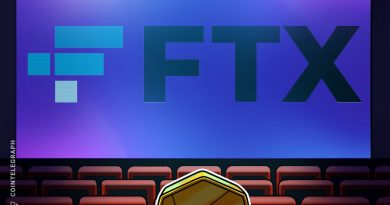Why Bitcoin’s supply is limited
People know the supply of Bitcoin is limited, but do they know why this is the case?
Most think the limited supply is due to an approach from Satoshi Nakamoto to create an electronic cash that—other than the current fiat money system—cannot be inflated and therefore serves as deflationary “hard money”.
However, there are other reasons to consider.
All Bitcoins have been issued already
Today there are no more Bitcoins being created by the block reward miners—even though people perceive it that way.
Satoshi Nakamoto has already issued all existing Bitcoins when launching the Bitcoin system. There are no more newly issued Bitcoins coming to life, no matter what miners do.
What miners do though is get paid Bitcoins in the form of a diminishing subsidy as a reward for enforcing the rules of the protocol. It is crucial to understand the difference between the issuance of Bitcoins and the distribution of Bitcoins.
Satoshi Nakamoto issued all Bitcoins in January 2009 and is—automatically via the Bitcoin software—distributing them to the honest nodes (miners) that perform their work in and for the Bitcoin system. These miners then distribute the Bitcoins to others (users, speculators, other miners and exchanges by selling them) by selling them off into the open market to fund their ongoing business operations.
Why did Satoshi Nakamoto stop issuing Bitcoins though?
So to be clear, the distribution of Bitcoins is still ongoing while the issuance of Bitcoins was a onetime event that happened already when Bitcoin was launched back in January 2009.
Could Satoshi Nakamoto issue more Bitcoins? And therefore distribute more Bitcoins to the miners?
He definitely could, but it probably is wise not to do so. And this is not due to the thought of “more Bitcoins harm the deflationary status of Bitcoin.” It rather has to do with regulatory reasons concerning issuing something of value, and the contractual nature of Bitcoin.
Satoshi Nakamoto has made a promise and is contractually bound to it
First of all, Satoshi Nakamoto set up Bitcoin in a way that no more Bitcoins are going to be issued. Miners who accept Satoshi Nakamoto’s unilateral offer perform their work in the Bitcoin system believing that these “set in stone” rules of Bitcoin will never change.
Changing the limited supply of Bitcoin would be incoherent with the Bitcoin contractual offer that Satoshi has made to the world.
For more information about Bitcoin as being bound under contract, see this discussion between Dr. Craig Wright, Joel Dalais and myself:
Satoshi Nakamoto would not want to issue more Bitcoins for another reason though
There is more to it than the contractual side of Bitcoin.
Let us pay close attention to what Satoshi Nakamoto did when he issued the 21 million Bitcoins initially.
What did he issue? A security? A commodity? Something else?
Wrong questions!
What was Bitcoin worth when Satoshi Nakamoto issued all 21 million Bitcoins?
Nothing.
Bitcoins had no value when Satoshi Nakamoto issued them. He issued something of no value. This is crucial to understand.
If he would issue more Bitcoins now, he would issue something of great value. For example, BTC just hit a price of over $50,000 per token. The issuer of more BTC would be issuing something that has a value of $50,000 per piece.
You probably do not want to do that as a private person. There are regulatory and more importantly tax related issues doing such a thing.
We know that Bitcoin SV is the only digital asset that follows the original Bitcoin white paper. BTC and BCH are considered “new coins,” that were issued at very high valuations when the BTC/BCH and the BCH/Bitcoin SV splits happened:
The limited supply of Bitcoin is not foremost about creating ‘hard deflationary money’
The once and never repeated issuance of Bitcoins was a wise step for Satoshi Nakamoto as the issuer himself. Spared and still spares him a lot of legal and financial trouble to have done it exactly this way.
For more information, have a look at 01:04:50 onwards in the following discussion between Dr. Craig Wright and Ryan X. Charles:
As well as from 00:11:30 onwards here:
Source: Read Full Article

